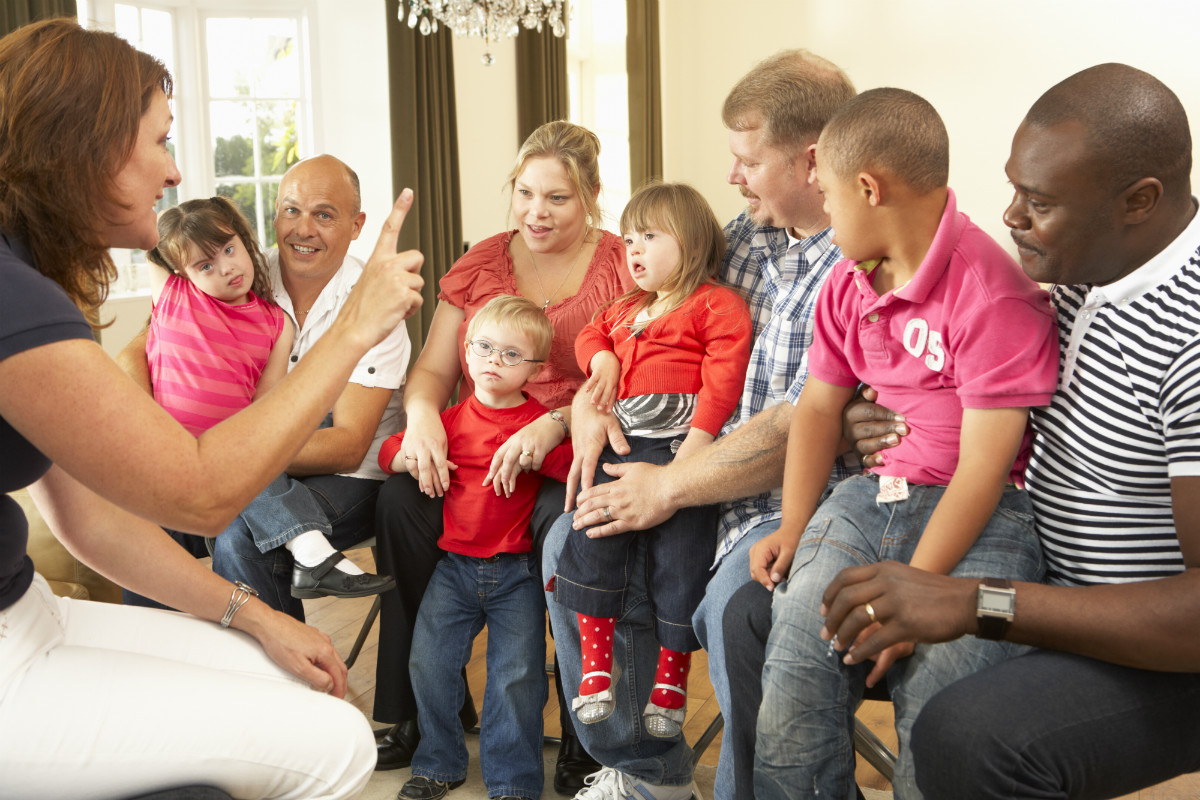Honoring Parenting Variations in Diverse Cultures
Explore the intricate tapestry of diverse parenting styles across cultures, shaped by traditional beliefs and societal norms. In some Eastern cultures, respect for authority and elders is paramount, contrasting with Western emphasis on individualism and critical thinking. Extended family networks play a crucial role, fostering collaborative parenting and community involvement. Cultural influences deeply impact disciplinary norms, communication styles, and traditional practices, reflecting values passed down through generations. Understanding these variations helps appreciate the richness of global child-rearing diversity, offering insight into how beliefs, family dynamics, and rituals shape parental approaches with care and respect for cultural differences.
Key Takeaways
- Recognize cultural diversity in parenting styles.
- Value traditional beliefs and practices.
- Embrace unique approaches to discipline.
- Appreciate the influence of extended family networks.
- Foster understanding and respect for varied parenting methods.
Cultural Influences on Parenting Styles

Across various cultures, parenting styles are greatly influenced by traditional beliefs and societal norms, shaping the way parents raise their children.
Parenting techniques in different cultures often reflect the core cultural values that have been passed down through generations. For example, in some Eastern cultures, there’s a strong emphasis on respect for authority and elders, which is reflected in the parenting approach of instilling discipline and obedience in children from a young age.
On the other hand, in certain Western cultures, individualism and self-expression are highly valued, leading to parenting styles that encourage independence and critical thinking in children. These contrasting cultural values can be seen in how parents from these different backgrounds approach decision-making, discipline, and emotional expression with their children.
Understanding the influence of cultural values on parenting styles can help foster appreciation for the diversity of approaches to raising children worldwide. By recognizing and respecting these variations, we can gain insights into the rich tapestry of parenting practices that exist across different cultural contexts.
Role of Extended Family Networks
In many cultures, the role of extended family networks greatly shapes and influences parenting practices, providing a supportive framework for raising children. Family dynamics within these networks often involve not only parents but also grandparents, aunts, uncles, and cousins who play vital roles in the upbringing of children.
Support systems are built on the foundation of mutual care and responsibility, where multiple generations contribute to the nurturing and guidance of the younger ones.
Parenting roles in such extended families are often shared, with responsibilities distributed among various family members based on their strengths and availability. This collaborative approach to parenting fosters a sense of community involvement, where everyone has a stake in the well-being and development of the children.
Children grow up surrounded by a network of caring individuals who provide different perspectives, skills, and experiences, enriching their upbringing in diverse ways. The interconnectedness of family members creates a web of love, support, and guidance that shapes the values and beliefs passed down through generations.
Traditional Parenting Practices
As you explore traditional parenting practices across diverse cultures, you’ll encounter the profound influence of cultural upbringing on parenting styles.
Multigenerational family roles play a significant part in shaping parenting dynamics and fostering a sense of community.
Additionally, rituals and celebrations unique to each culture offer meaningful opportunities for bonding and passing down values through generations.

Cultural Upbringing Influences
Various cultures around the world exhibit unique traditional parenting practices that shape the upbringing of children. Cultural values play a significant role in determining these practices.
For instance, in some cultures, respect for elders is paramount, leading to parenting techniques focused on instilling obedience and deference in children towards their elders. In contrast, other cultures prioritize independence and self-expression, resulting in parenting styles that encourage children to voice their opinions and make decisions from a young age.
Parenting techniques can also vary widely based on cultural beliefs. In some cultures, discipline may be strict and authoritarian, emphasizing obedience and adherence to societal norms. On the other hand, in more individualistic societies, parenting techniques might focus on fostering creativity and independence in children, allowing them more freedom to explore and express themselves.
Understanding these cultural influences on parenting practices is crucial for appreciating the diversity of approaches to child-rearing worldwide. By recognizing and respecting these differences, we can gain insight into the rich tapestry of traditions that shape the upbringing of children in different parts of the world.
Multigenerational Family Roles
Traditional parenting practices often involve distinct multigenerational family roles that shape the upbringing of children across diverse cultures. Family dynamics play an important role in these practices, where each generation has specific responsibilities and expectations within the family structure. Cultural influences heavily dictate these generational roles, impacting how children are raised and the values instilled in them.
In many cultures, grandparents play a significant role in the upbringing of children. They often serve as the primary caregivers, passing down traditions, values, and wisdom to the younger generations. This intergenerational connection fosters a sense of unity and respect within the family unit, strengthening bonds that last a lifetime.
Moreover, the distribution of responsibilities among family members varies across cultures. While some societies prioritize the role of elders in decision-making and discipline, others may have a more egalitarian approach where each family member contributes equally to childcare and household duties. Understanding these multigenerational family roles provides insight into the diverse ways in which parenting is approached worldwide.
Rituals and Celebrations
In different cultures around the world, parenting practices often include unique rituals and celebrations that hold significant importance in shaping the upbringing of children. Festive traditions and community gatherings play a central role in many cultural parenting norms, fostering a sense of belonging and identity within the community.
For example, in some cultures, the birth of a child is celebrated with elaborate ceremonies where family and friends come together to bless the newborn and offer well-wishes to the parents.
Family ceremonies are another integral part of traditional parenting practices, serving as a way to pass down cultural values and beliefs from one generation to the next. These ceremonies often mark important milestones in a child’s life, such as their first steps, first day of school, or coming of age.
Through these rituals and celebrations, children learn about their cultural heritage and develop a strong sense of identity rooted in their community’s traditions. Embracing these practices helps parents instill a deep appreciation for their cultural heritage in their children, fostering a sense of pride and connection to their roots.
Impact of Religion and Beliefs

Religion and beliefs play a significant role in shaping parenting practices across diverse cultures, influencing values, norms, and approaches to child-rearing.
In interfaith parenting dynamics, families navigate the rich tapestry of different belief systems, blending traditions and values to create a unique parenting style.
Family values in religion often form the foundation of discipline, respect, and moral development within the household.
Within various cultures, religion can dictate the roles of parents and children, with some emphasizing hierarchical structures while others promote more egalitarian relationships.
For instance, in some faiths, obedience and adherence to religious teachings are paramount, shaping parental expectations and disciplinary methods.
Conversely, other religions may prioritize empathy, compassion, and understanding in parental guidance.
Moreover, family rituals and traditions rooted in religious beliefs can foster a sense of identity, unity, and belonging among family members.
These practices not only strengthen familial bonds but also transmit cultural heritage and values from one generation to the next.
The impact of religion on parenting varies greatly across cultures, reflecting the diverse ways in which beliefs shape parental approaches and values.
Language and Communication in Parenting
When it comes to parenting across different cultures, the way language and communication are used can vary greatly.
Nonverbal cues play a significant role in conveying messages in some cultures, while others emphasize direct verbal communication.
Bilingual parenting offers unique benefits, such as enhanced cognitive development and cultural understanding, but it also presents challenges in maintaining language balance within the family unit.
Nonverbal Cues in Parenting
Nonverbal cues play a significant role in parental communication across various cultures, influencing the language and interactions within the parent-child relationship. Body language serves as a universal form of expression, transcending linguistic barriers to convey emotions and intentions.
In some cultures, a gentle touch on the shoulder may signify reassurance, while in others, maintaining eye contact demonstrates respect and attentiveness. These silent gestures create a profound connection between parent and child, fostering understanding beyond words.
Silent guidance through nonverbal cues can be a powerful tool in shaping behavior and values. A nod of approval or a smile can reinforce positive actions, while a furrowed brow may signal disapproval. Across different cultural contexts, these subtle signals help children navigate social norms and expectations.
Understanding the nuances of nonverbal communication within a cultural framework is essential for effective parenting, as it enhances the emotional bond and promotes harmonious interactions between parents and children.
Bilingual Parenting Benefits
Utilizing multiple languages in parenting can offer numerous benefits, enhancing language skills and fostering effective communication between parents and children. When parents engage in bilingual parenting, they provide a rich linguistic environment that supports language development in unique ways.
Children raised in bilingual households often demonstrate advanced cognitive benefits, such as enhanced problem-solving skills and greater creativity in tasks that require flexibility of thought. Moreover, bilingual parenting can lead to improved communication skills as children learn to navigate different languages and cultural contexts.
This exposure not only broadens their worldview but also allows for a deeper understanding of diverse perspectives. By communicating with their children in multiple languages, parents create opportunities for meaningful interactions that strengthen family bonds and promote mutual understanding.
Cultural Impact on Language
In the domain of parenting, the cultural background of caregivers greatly influences language use and communication styles within the family dynamic. Language evolution is profoundly impacted by cultural expressions, shaping how parents interact with their children.
For instance, in some cultures, direct communication is valued, leading to explicit instructions and feedback, while in others, indirect communication prevails, emphasizing non-verbal cues and context. These linguistic nuances are ingrained in parenting practices, influencing how emotions are expressed, discipline is administered, and stories are shared.
Furthermore, the cultural impact on language extends to the development of bilingualism, as some cultures prioritize multilingualism from an early age, fostering diverse language skills within the family unit. This emphasis on linguistic diversity reflects the cultural richness and heritage passed down through generations.
Understanding the cultural influences on language within parenting allows for a deeper appreciation of the intricate ways in which communication styles evolve and shape family relationships.
Discipline and Behavioral Expectations

Cultural differences greatly shape the approaches parents take towards discipline and the behavioral expectations they uphold within their families. Discipline techniques and behavioral boundaries vary considerably across cultures, reflecting the influence of cultural norms on parenting styles.
For instance, in some cultures, discipline is often based on strict rules and obedience, while in others, it may focus more on communication and reasoning with children.
In some cultures, parents may emphasize respect for authority and adherence to rules, using methods like time-outs or loss of privileges to enforce discipline. On the other hand, in cultures that prioritize emotional connection and mutual understanding, discipline techniques may involve discussions, negotiations, or positive reinforcement.
These differences in disciplinary approaches can also shape the behavioral expectations parents have for their children, affecting how they define and respond to behaviors like disobedience or aggression.
Understanding these diverse approaches to discipline and behavioral expectations can help promote empathy and respect for different parenting styles, fostering a more inclusive and culturally sensitive perspective on child-rearing practices worldwide.
Celebrating Diversity in Parenting
Embracing the rich tapestry of parenting practices from around the world highlights the beauty and effectiveness of diverse approaches in nurturing children. Parenting traditions vary greatly across cultures, each offering unique insights and wisdom on raising well-rounded individuals. Cultural diversity enriches the landscape of parenting, showing that there’s no one-size-fits-all approach to guiding and supporting children.
In some cultures, communal child-rearing is prevalent, where neighbors, extended family members, and the community at large play a vital role in shaping a child’s upbringing. This contrasts with individualistic societies where the nuclear family takes the lead in childcare. Both approaches have their merits, emphasizing the importance of interconnectedness or autonomy in child development.
Moreover, parenting traditions can reflect spiritual beliefs, societal norms, and historical practices. By appreciating and learning from these diverse methods, we gain a deeper understanding of the complexity and beauty of human upbringing across the globe. Celebrating this diversity in parenting fosters cultural empathy and respect, enriching our collective knowledge on what it means to nurture the next generation.
Frequently Asked Questions
How Can Modern Parenting Practices Bridge Cultural Gaps?
To bridge cultural gaps with modern parenting practices, attend parenting workshops for insights on diverse approaches. Engage in cultural exchange to understand different perspectives. Connect through parenting blogs and seek community support to navigate challenges together.
Do Parenting Styles Vary Within the Same Cultural Group?
Parenting styles can indeed vary within the same cultural group due to generational differences and adaptation to changing norms. Consistency in values and traditions may differ, leading to diverse approaches in raising children.
How Do Parents Navigate Conflicting Traditional Practices?
You navigate conflicting traditional practices by finding a cultural compromise. Embrace respectful conversations to bridge generational conflict. Balance traditional and modern parenting strategies through understanding and adapting, creating a harmonious blend that honors your heritage while embracing new approaches.
Can Religion and Beliefs Impact Parenting Flexibility?
Religious influence can strongly impact parenting boundaries. Your beliefs shape your approach, affecting flexibility. Understanding different viewpoints allows for respectful comparisons. Balancing traditions and adaptability is key for harmonious family dynamics.
What Role Does Bilingualism Play in Multicultural Parenting?
In multicultural parenting, bilingualism influences language development, fostering a rich linguistic environment. It plays a pivotal role in identity formation, offering a unique perspective and enhancing cultural connections. Embracing bilingualism enriches your child’s experiences and understanding.
Conclusion
As you reflect on the diverse parenting styles across cultures, you can appreciate the beauty of different approaches to raising children.
From the role of extended family networks to traditional practices and beliefs, each culture brings a unique perspective to parenting.
By celebrating this diversity, we can learn from one another and create a more inclusive and understanding world for all families.

Hey there! 👋 I’m a proud mom and passionate writer, sharing my parenting journey. 📝 Join me as I navigate the ups and downs of motherhood, offering tips, advice, and a sprinkle of humor along the way. 🌟







